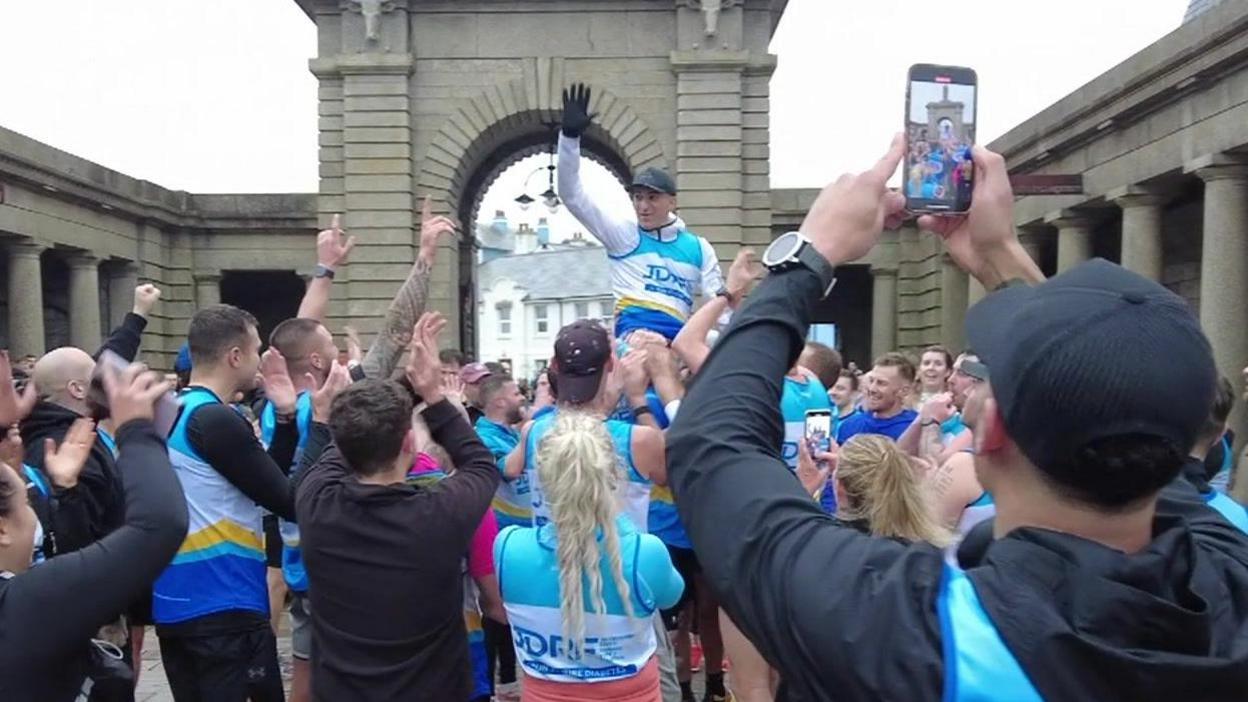'Why I spent five days racing through the Arctic'
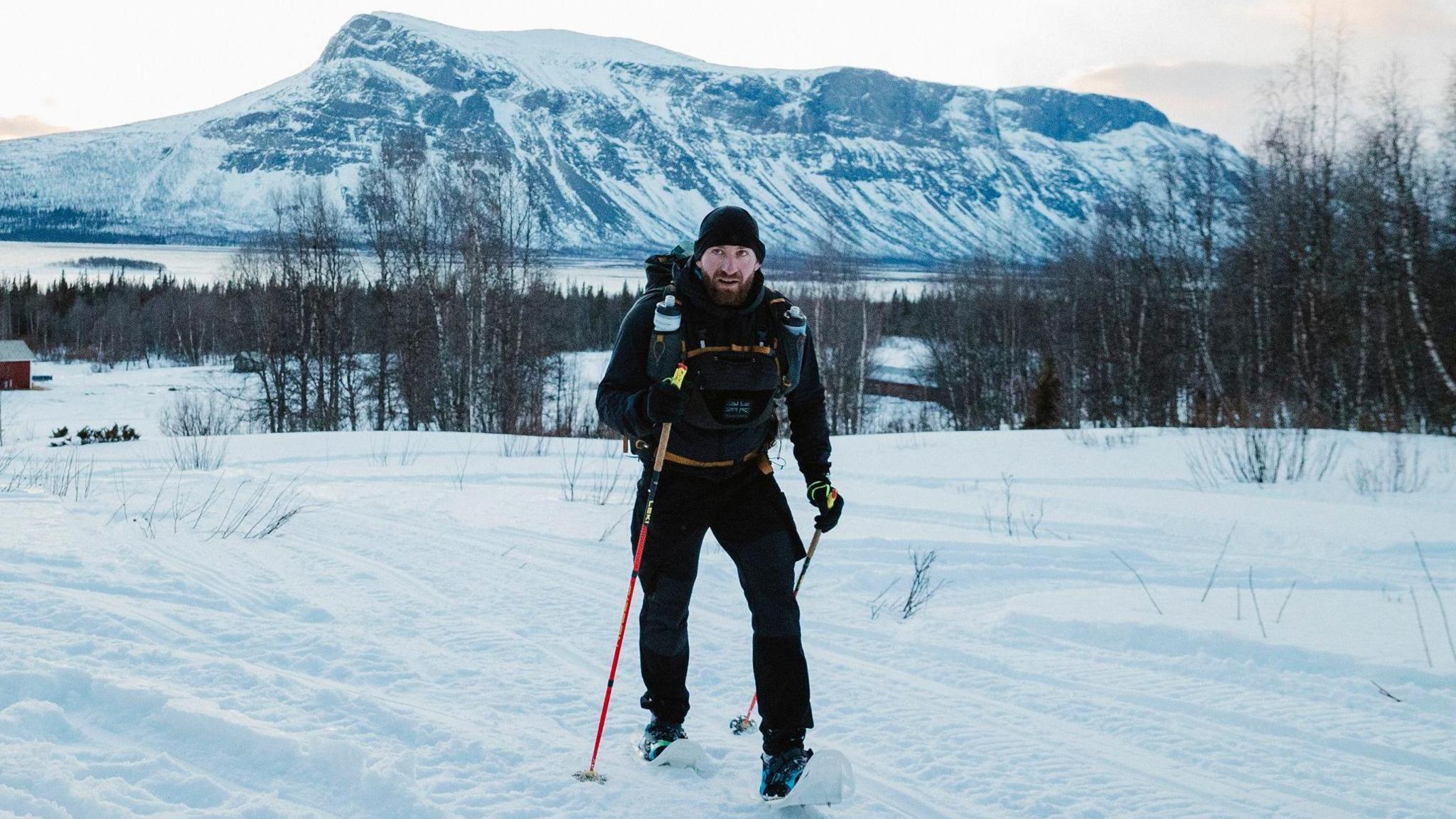
Marc Rhodes finished third in the Arctic Ice Ultra last month
- Published
An endurance athlete has completed one the world's toughest ultramarathons, crossing 143 miles (230km) of snowfields and Arctic tundra in five days.
Marc Rhodes, from Poole, Dorset, finished third in the Ice Ultra last month and had to overcome temperatures dropping to about -25C.
The performance consultant, who specialises in mental resilience and physical performance, said people "do not always know what they are capable of".
Left by his birth mother as a baby in a cardboard box outside Johnson Community Hospital in Spalding, Lincolnshire, he said he is "problematically adventurous and free-willed".
"When I found out about that, it was much later. It kind of read like a movie script. I can't really believe that happened to me," the 33-year-old said.
He said completing the ultramarathon – which is defined as any distance longer than a standard marathon of 26.2 miles (42.2km) – was "mentally very challenging" but rewarding.
"I'm not so fast but if you put me in a beautiful environment with rolling hills I absolutely love it and I'll be there all day," Mr Rhodes added.
On the third day of his challenge, he had to complete a stage which included a 13-mile (20.9km) frozen lake.
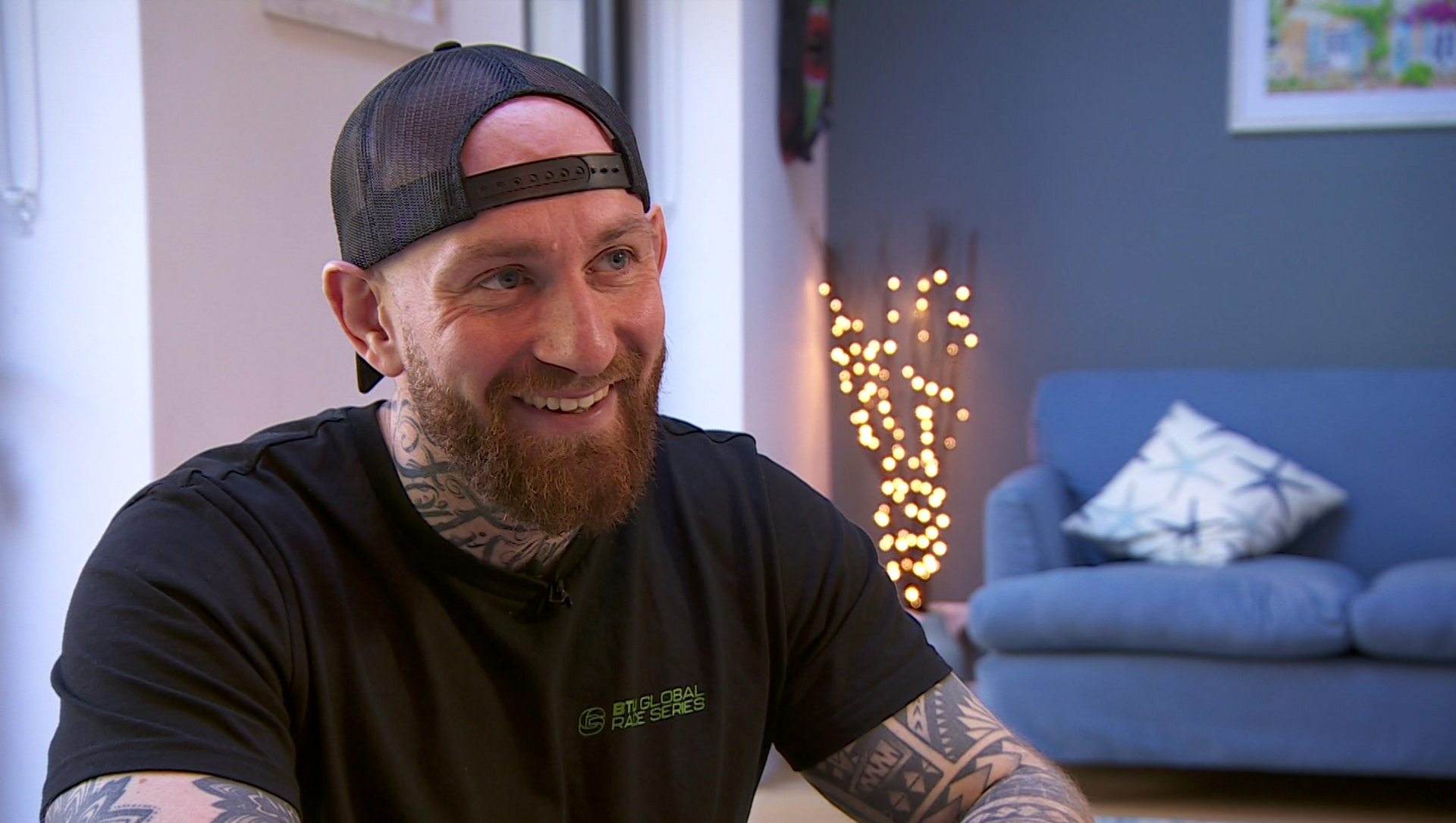
Marc Rhodes said people don't always know what they're capable of doing
"You can put your head down and run and nothing will move in front of you.
"It's like being on a treadmill. When you turn round you can see equally as far back and you can see the other racers trying to catch you. You can't really afford to have a rest or a breather because you're in a race," he said.
Mr Rhodes completed rigorous training before he set off for the challenge, during which competitors can expect about eight hours of sunlight a day.
"This is not a religious thing but I know that I'm not alone," he told BBC South.
"I have got a GPS tracker on and people are watching [his progress in the race] at home.
"You can't really coast because I really want the people who have backed me and supported me to be encouraged by the effort I'm putting in."
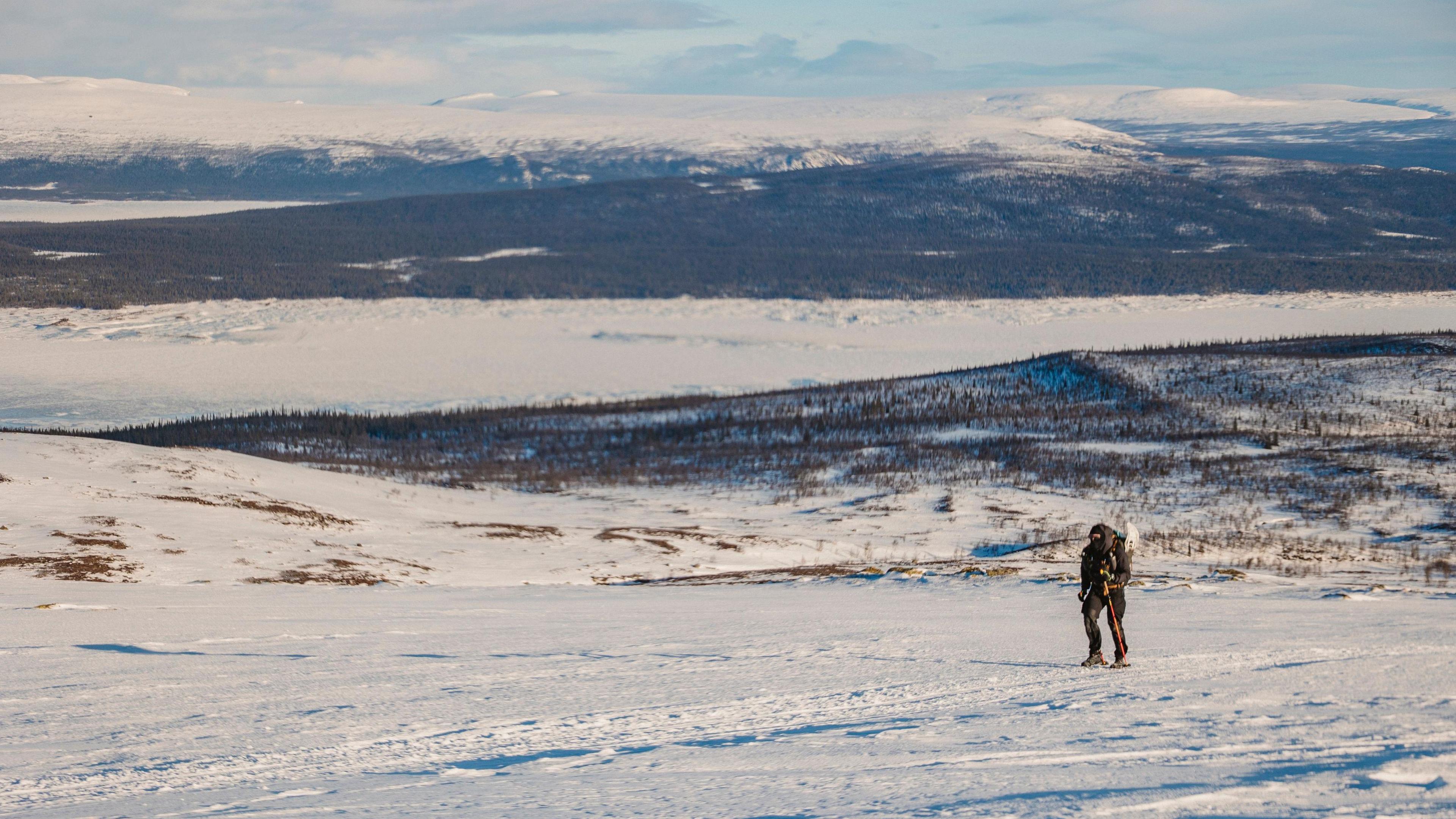
Competitors can expect about eight hours of sunlight a day during the challenge
He completed the course in a time of 32 hours and 50 minutes.
"It's just so hard to articulate but you never know where the finish line is going to be because you've not done the course before," he added.
"When you turn the corner and hear the music and the cowbells going, all fatigue evaporates and you're just sprinting to get to the finish line and do the best you can.
"You cross it and you get a big medal, a big pat on the back, a beer thrust into your hand and that's it: you're done and there's an overwhelming sense of elation and relief."
Get in touch
Do you have a story BBC Dorset should cover?
You can follow BBC Dorset on Facebook, external, X, external, or Instagram, external.
Related topics
More from the BBC
- Published16 September 2024
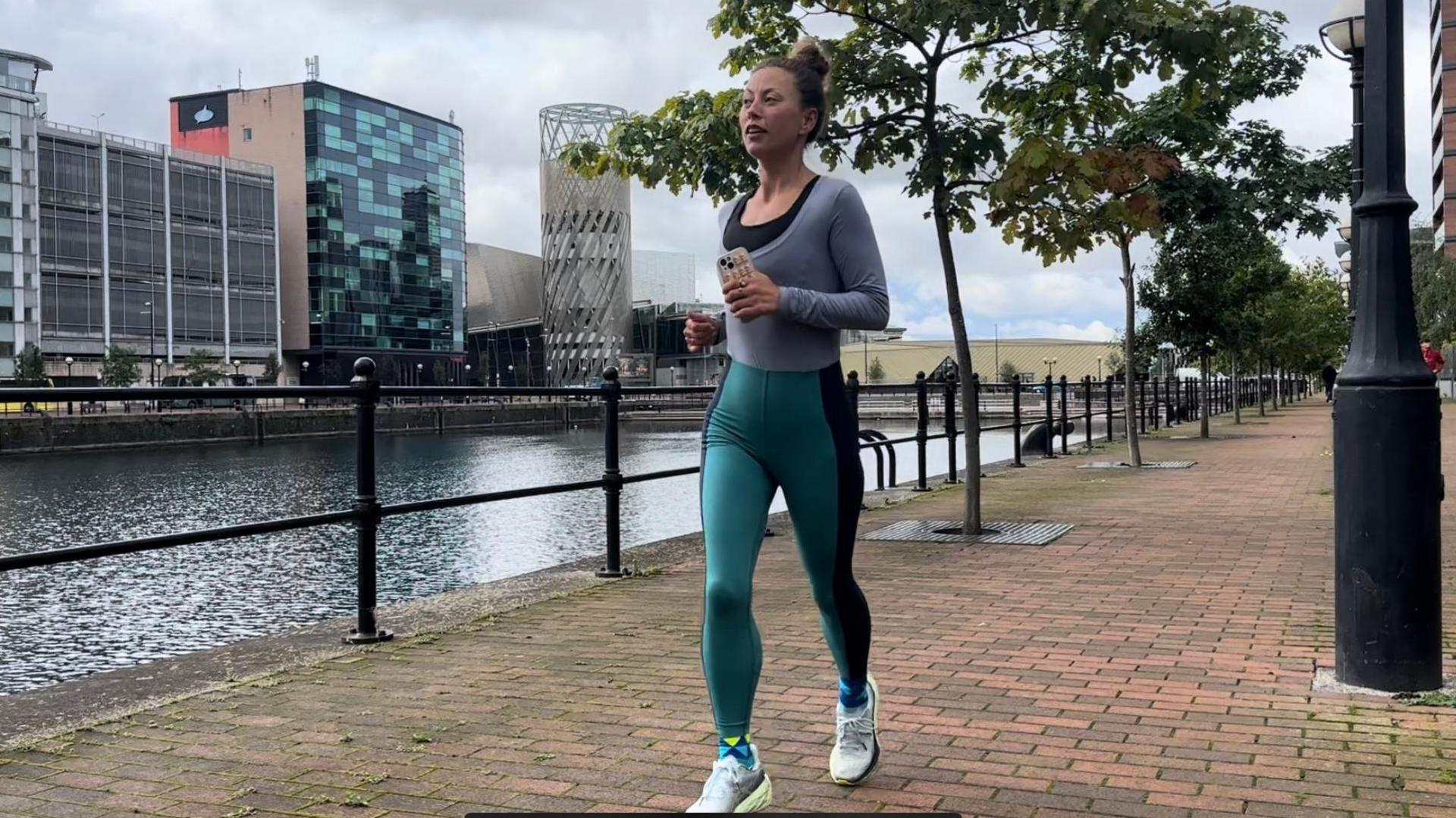
- Published12 January
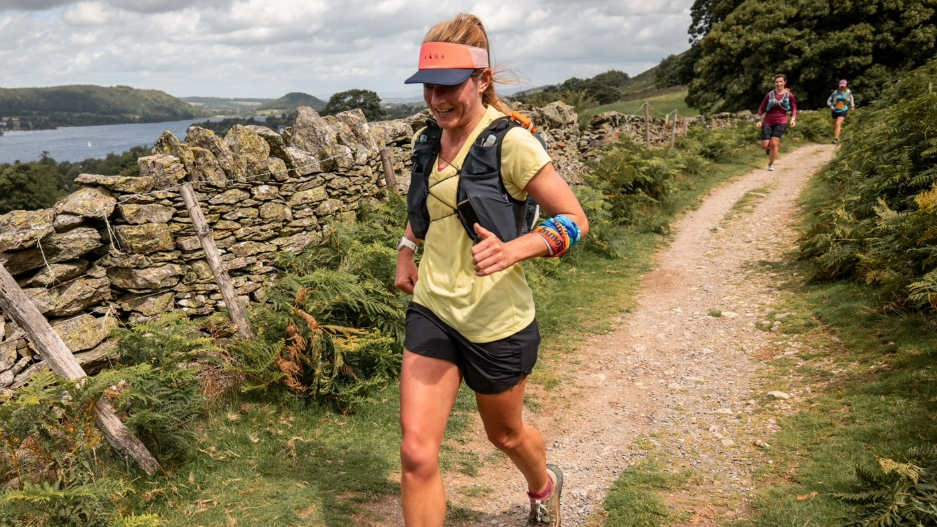
- Published15 June 2024
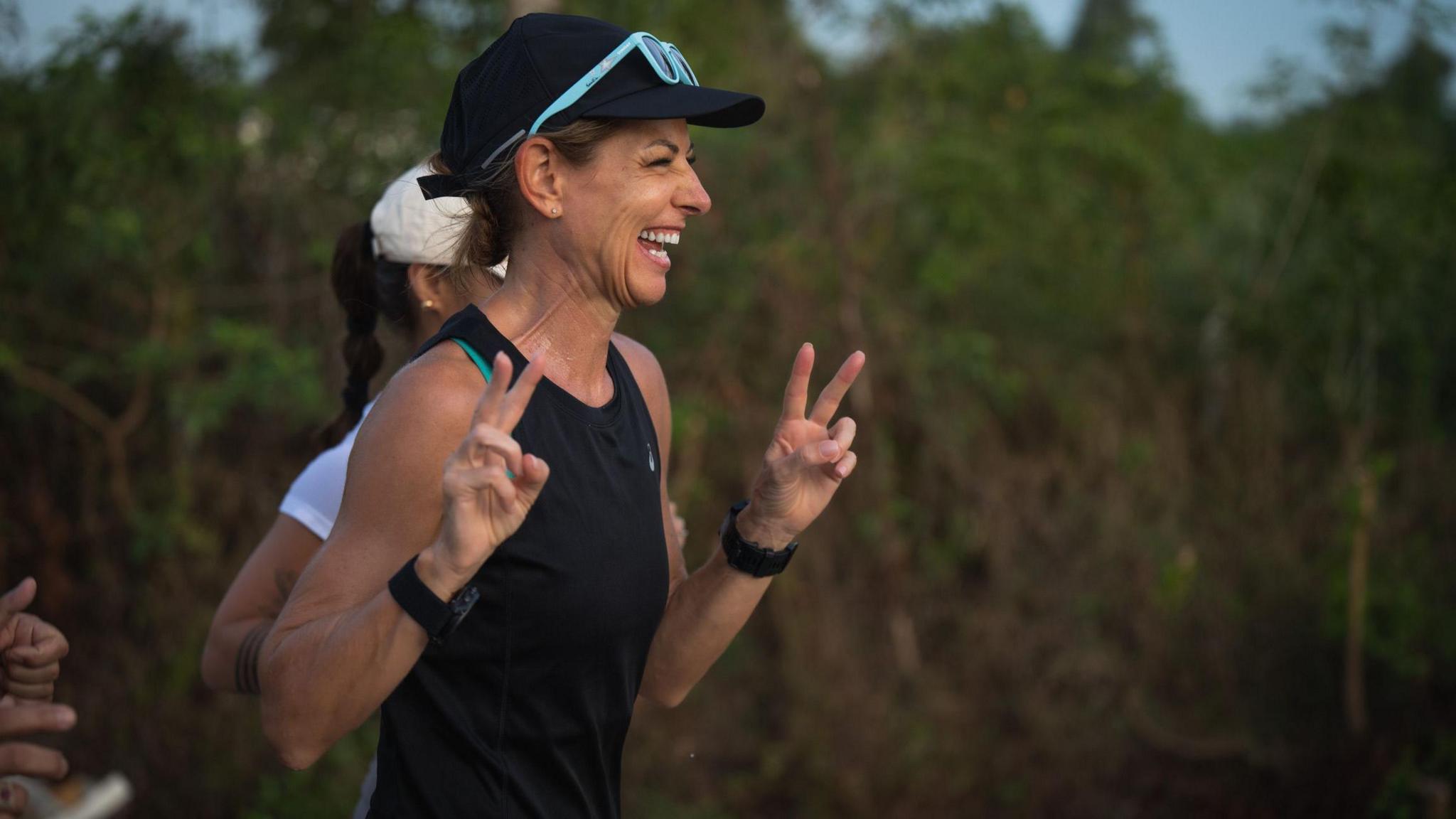
- Published30 November 2024
